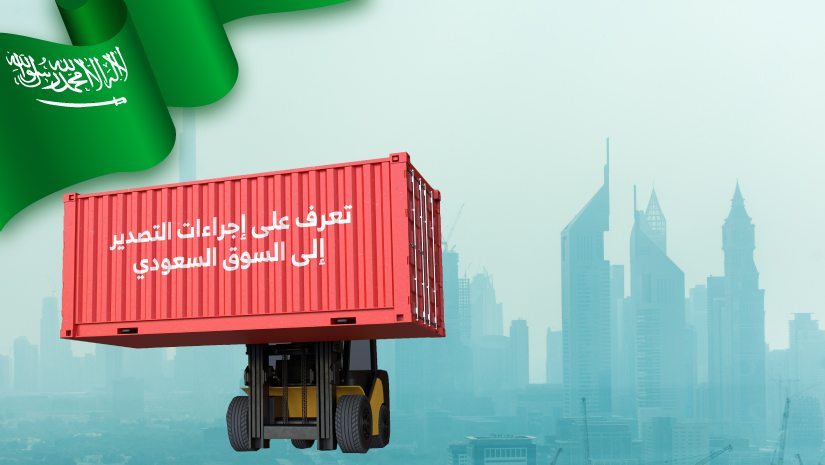Customs requirements in the Kingdom of Saudi Arabia for starting exports

In the world of global trade, export customs requirements are one of the most important factors that must be carefully considered. This process involves a variety of procedures and laws that must be followed to ensure the safety and success of the export process. In the Kingdom of Saudi Arabia, these requirements take on special dimensions given the importance of the economic and commercial sector in developing the national economy.
This article aims to explore customs export requirements in the Kingdom of Saudi Arabia, and how to start the export process correctly and efficiently. We will discuss many important aspects such as the necessary registration and licensing procedures, learning about export-related taxes and fees, in addition to clarifying the required documents and basic customs procedures that must be taken.
By comprehensively understanding these requirements and implementing them accurately, exporters and trading companies can achieve sustainable export success, thereby contributing to strengthening the national economy and strengthening international trade relations.
Basic concepts of export
Basic export concepts are essential to the success of the export process, as they include understanding customs terminology and complying with customs legislation.
Definition of customs terms
Customs terminology is an essential part of the export process, as it refers to the terms and concepts used in customs and customs clearance. Exporters must carefully understand these terms to ensure compliance with customs legislation and laws. Some important terms include: inspection price, temporary export, customs duties, and paper assets.
The importance of complying with customs legislation
Compliance with customs legislation is crucial in the export process. Exporters must ensure compliance with all applicable customs laws and regulations in the Kingdom of Saudi Arabia.
By complying with customs legislation, the smooth and successful export process is ensured, avoiding any legal problems or risks affecting the workflow.
In this context, it is important for exporters to understand the customs terminology and procedures applied in the Kingdom of Saudi Arabia. Exporters must verify all customs clearance details, such as classification of goods and calculation of required duties and taxes.
In addition, exporters should be aware of new changes in customs legislation and regulations, and should follow any updates that may occur to customs procedures and requirements.
In short, compliance with customs legislation is a crucial necessity to ensure the success of the export process. Exporters must stay informed of all relevant laws and regulations and ensure that they are applied accurately and effectively.
Steps necessary for export
- Preparing the necessary documents for the export process.
- Determine and calculate the required customs duties.
- Ensure that the product conforms to the requirements of the importing country.
- Book transportation and arrange shipping.
- Follow up on the customs clearance process to ensure smooth transit.
- Providing certificates of origin and quality if necessary.
- Determine appropriate payment methods and complete the financial settlement process.
note:
- Please ensure that all customs procedures and laws applicable in the importer's country are followed.
- Specific steps may vary depending on the product type and target destination.
- Preparing the necessary documents
Preparing the necessary documents is a crucial step in the export process. Documents such as export invoice, packing list, certificate of origin and shipping invoice must be prepared. It must also be ensured that all documents comply with the requirements of the importer's country and customs directives. The required documents may vary depending on the type of product and target destination.
Determine the required customs duties
- Determining the required customs duties is a crucial step in the export process. The list of customs duties required for the target country must be checked and ensured that they are compatible with the exported products.
- Some countries may apply fixed or variable customs duties based on the type or origin of the product. It is important to ensure that these charges are accurate to avoid any legal issues or detention of goods at the port.
Commercial facilities
To achieve trade facilitation in the export process, the exporter should benefit from free trade agreements and customs alliances. These agreements provide customs discounts and simple procedures for required documents, facilitating the export process.
An example of this is the free trade zone agreement between the Arab Gulf states and the European Union. The exporter is advised to review a list of applicable agreements and ensure that he benefits from them.
Free trade agreements
- To achieve trade facilitation in the export process, the exporter should take advantage of free trade agreements. These agreements provide customs discounts and simple documentation procedures, facilitating the export process. An example of this is the free trade zone agreement between the Arab Gulf states and the European Union. The exporter is advised to take advantage of these agreements and ensure that he benefits from them in the export process.
- Customs alliances and their impact on export operations
- Customs alliances are trade agreements between different countries aimed at facilitating trade movement and reducing trade barriers.
- Through these alliances, customs reductions are applied to products exported between contracting countries. These alliances contribute to increasing the volume of trade exchange and enhance the ability of companies to access new markets without high tariff barriers.
Security and quality controls
- Security and quality control requirements are an essential part of the export process, as companies must adhere to safety and quality standards before shipping goods. This includes inspection of goods and shipping to ensure product safety and compliance with international standards.
- It is recommended to establish a strong quality management system and take reliable security measures to ensure product protection during the export process.
- Cargo inspection and shipping requirements
- Cargo and shipping inspection requirements include inspections and testing to ensure product safety and compliance with standards

